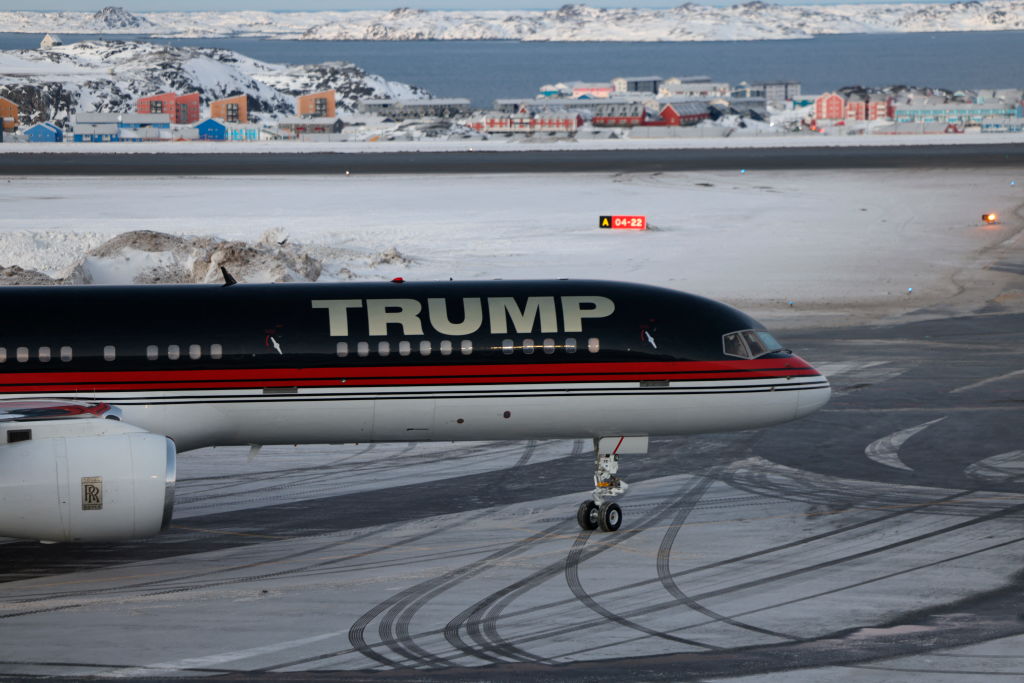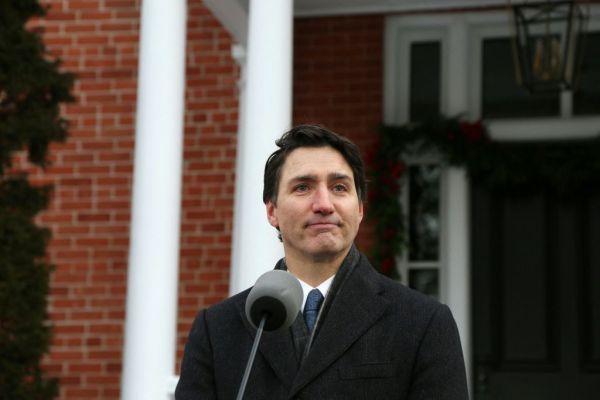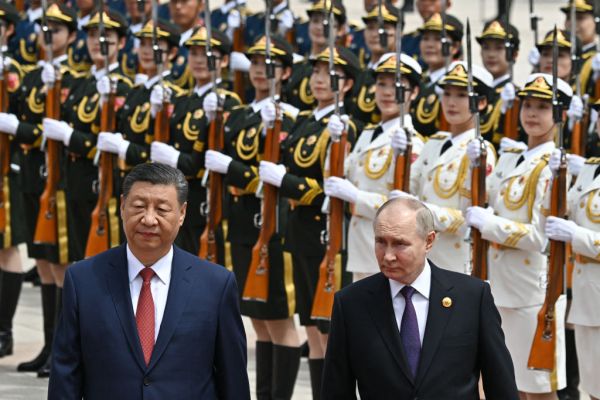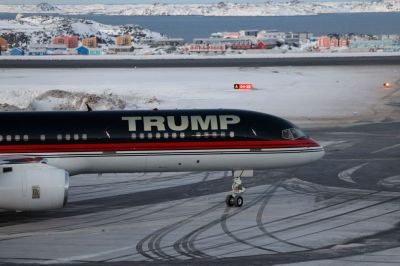Happy Friday! If anyone was wondering, Belgium’s food agency has officially warned against eating your Christmas tree. But don’t change your dinner plans just yet—Sweden says it’s fine.
We’ll let our brave readers tell us which country is right.
Quick Hits: Today’s Top Stories
- Wildfires continued to burn out of control in and around Los Angeles on Thursday, bringing the natural disaster’s total death toll to at least 10. Fanned by the powerful Santa Ana winds, the fires have damaged or destroyed more than 9,000 buildings and burned through 35,000 acres in the Pacific Palisades and other neighborhoods in the greater Los Angeles area, forcing more than 180,000 people from their homes. Los Angeles County Fire Chief Kristin Crowley on Thursday described the Palisades fire as “one of the most destructive natural disasters” in the city’s history, while President Joe Biden pledged that the federal government would cover the entire cost of the initial recovery period.
- Government officials, foreign dignitaries, and politicians—including the nation’s five living American presidents—gathered at the Washington National Cathedral on Thursday for the state funeral of President Jimmy Carter, who died on December 29 at the age of 100. Friends and family members paid tribute to Carter, the country’s longest-living president, as a devoted public servant and a man of unwavering faith. “Jimmy Carter’s friendship taught me, and through his life, taught me, strength of character is more than title or the power we hold,” President Biden said in his eulogy.
- The Supreme Court—in a 5-4 decision Thursday evening—rejected President-elect Donald Trump’s request to delay his sentencing in his New York criminal case. Justices Amy Coney Barrett and John Roberts sided with the court’s three liberal justices in the decision, calling the burden of sentencing “relatively insubstantial” for the president-elect. Trump is required to appear for his sentencing this morning, but Judge Juan Merchan has indicated that he will not impose jail time or probation. Trump said on Truth Social that he would continue to appeal the case.
- The 11th Circuit Court of Appeals ruled Thursday that the first volume of special counsel Jack Smith’s final report on Trump, which details Smith’s investigation into the president-elect’s efforts to overturn the 2020 election, can be released to the public. Two of Trump’s co-defendants in the classified documents case—to which the second volume of Smith’s report pertains—filed emergency motions to block the report from being made public, but the motions were denied on the grounds that only the findings related to the 2020 election will be released while the documents case is pending. Judge Aileen Cannon’s temporary injunction blocking the report’s release will remain in place until Sunday.
- Defense Secretary Lloyd Austin unveiled the Biden administration’s final military aid package for Ukraine on Thursday, pledging $500 million in materiel. Austin made the announcement at a meeting with the Ukraine Defense Contact Group—a coalition of over 50 countries helping Ukraine in its fight against Russia—marking the last time the group will meet before President-elect Trump takes office. The group has provided more than $126 billion in security assistance to Kyiv, about $61 billion of which was supplied by the U.S., but Trump has made no firm commitments to back Ukraine in the future.
- Venezuelan authorities briefly detained opposition leader María Corina Machado in the country’s capital of Caracas on Thursday, according to her campaign team. Following a rally, the group said, Machado was knocked off her motorcycle and “violently intercepted” amid gunfire. The incident—which Venezuelan officials have denied—came on the eve of President Nicolas Maduro’s inauguration today. The authoritarian socialist leader declared victory in a July election that the U.S. and others have denounced as rigged in favor of the incumbent.
- A federal judge on Thursday struck down the Biden administration’s effort to expand safeguards for LGBT students under Title IX. In a 15-page opinion, U.S. District Judge Danny C. Reeves said the revised Title IX regulation—which was issued by the Department of Education in April—represented executive overreach and ran afoul of the First Amendment. “The entire point of Title IX is to prevent discrimination based on sex,” he wrote. “Throwing gender identity into the mix eviscerates the statute and renders it largely meaningless.”
- Vice President-elect J.D. Vance resigned his Senate seat at midnight on Thursday, in preparation for his inauguration alongside President-elect Trump on January 20. The Ohio Republican’s successor will be chosen by Republican Gov. Mike DeWine, who said on Wednesday that his announcement “will be coming soon.”
Making Expansionism Great Again

Less than two weeks until President-elect Donald Trump’s inauguration, journalists and commentators got their first fully fledged goose chase of the new administration during a press conference at Mar-a-Lago on Tuesday.
The ostensible purpose of the presser was to announce a $20 billion investment by a Dubai developer in data centers across eight states. But more than an hour into Trump’s remarks, the focus shifted away from the multi-billion dollar tech deal and into the realm of the bizarre, as the soon-to-be president mused about doubling the size of the continental United States by absorbing Canada, annexing Greenland, taking back the Panama Canal, and just for good measure, renaming the Gulf of Mexico the “Gulf of America.”
As longtime TMD readers know, we don’t consider it our job to follow the once and future president down every rabbit hole he fancies. There’s enough coverage of his more outlandish statements already; we don’t need to add to the noise—particularly when it comes to off-the-cuff asides that don’t end up mattering much. Eventually, though, some of those outlandish statements or off-the-cuff asides end up mattering a whole lot. It’s our job to ascertain which is which as best we can. And there are some signals that Trump’s latest expansionist turn may, at least in part, become a more enduring focus of the new administration.
The talk of our northern neighbor joining the union seems more like noise—or trolling—than signal. “Many people in Canada LOVE being the 51st State,” Trump wrote Monday in a Truth Social post mocking Canadian Prime Minister Justin Trudeau’s resignation. “If Canada merged with the U.S., there would be no Tariffs, taxes would go way down, and they would be TOTALLY SECURE from the threat of the Russian and Chinese Ships that are constantly surrounding them. Together, what a great Nation it would be!!!” He followed the post by sharing maps illustrating Canada as part of the United States.
During Tuesday’s press conference, Trump remarked, “Canada and the United States, that would really be something.” But most of his comments about Canada came back to trade, suggesting the 51st state rhetoric is primarily a gambit in Trump’s game of tariff chicken. When asked if he’d consider using military force to take Canada, the incoming president replied, “No, economic force.”
But Trump’s focus on Greenland seems less off-the-cuff. In a post announcing his pick for U.S. ambassador to Denmark last month, he described U.S. ownership and control of Greenland as an “absolute necessity” for “National Security and Freedom throughout the World.” Greenland, a former colony of Denmark, is now an autonomous territory within the kingdom.
Trump reiterated the national security concerns guiding his plans for Greenland during the Tuesday press conference, and people close to the incoming president have reportedly told Danish officials that he is in fact serious about acquiring the icy island. His refusal to rule out taking Greenland by force—an odd stance given the long-standing U.S.-Denmark security pact obligating America to defend the island from attack—sparked rebukes from European officials.
Why is Trump doubling down on Greenland? His fixation with the island goes back to at least 2019 when he briefly pursued a purchase, ending in a public spat with Danish Prime Minister Mette Frederiksen. It’s not hard to imagine why a real estate developer would be interested in a land deal—buying new sovereign territory is about as close as geopolitics gets to the art of corporate deal-making. Trump has indicated as much in the past, saying, “Essentially it’s a large real estate deal”—although the incoming president may not understand the island’s actual size.
Proponents—including a couple of half-baked podcasters—support the move primarily on national security grounds. Greenland occupies a strategic position in the Arctic, a region that many analysts believe will increasingly become an area of competition with Russia and China as climate change widens waterways, improving access to strategic resources and offering new arenas for military confrontation.
“You have Russia that is trying to become king of the Arctic with 60-plus icebreakers, some of ‘em nuclear-powered,” Rep. Mike Waltz, Trump’s incoming national security adviser, said Wednesday. “This is about, as the polar ice caps pull back, the Chinese are now cranking out icebreakers and pushing up there as well. So, it’s oil and gas. It’s our national security. It’s critical minerals.”
The U.S. certainly has long shown interest in Greenland. President Harry Truman offered Denmark $100 million for the island in 1946. Nearly 80 years prior, Secretary of State William Seward—fresh off of negotiating the Alaska purchase—caught the Greenland (and Iceland) bug, commissioning a report on the island’s resources. But Seward’s dreams didn’t go very far. Around the same time, the Senate shot down a treaty Seward negotiated with Denmark for the U.S. to acquire the Virgin Islands. The transfer of the islands eventually moved forward in 1917.
Some analysts look to Seward’s prescience with the Alaska purchase as a reason to seriously consider a Greenland acquisition. “They thought Seward was a mad man,” Barry Zellen, a research scholar at the University of Connecticut and senior fellow at the Institute of the North whose work focuses on the Arctic, told TMD. “But in fact, it was brilliant, because having control of Alaska 160 years later has been amazing for us.”
“It’s a Seward-ian vision,” Zellen said of Trump’s Greenland designs.
But critics of the push argue that there is no real strategic value in the acquisition. The island is already part of the NATO umbrella via Denmark, and the U.S. has long had a military presence in Greenland thanks to a 1951 defense agreement. The U.S. military’s northernmost installation is located in Greenland and operates part of our ballistic missile early warning system.
Some former Trump administration officials have framed his interest in both Greenland and the Panama Canal as part of a broader hemispheric security strategy. “What [Trump] is trying to do is reinvigorate this focus on what are the outer boundaries of the Western Hemisphere, and defending them against great power competitors,” argued Alex Gray, the chief of staff of the White House National Security Council in Trump’s first administration. “You have to see Greenland and Panama in that context.”
When it comes to the Panama Canal, Trump’s primary concern seems to be how much the country charges U.S. ships to traverse strategic waterway. Trump’s former chief of staff Mick Mulvaney told our own Chris Stirewalt last month that he sees his old boss’ threats of re-taking the canal as a negotiating tactic over shipping rates. The incoming president has also claimed China has “basically taken over” the canal. A Hong Kong company operates ports at each of the canal’s entrances, but Panamanian officials have strongly denied any active Chinese influence on the canal’s operations. (The country is treaty-bound to keep the canal neutral and open to all vessels.) But some analysts see the Chinese companies’ maritime footprint as a potential threat to the canal’s neutrality.
Regardless, it’s unclear exactly what next steps the incoming Trump administration could take either in Greenland or Panama. What is clear? Trump’s recent remarks have been rebuffed by Danish and Panamanian officials alike.
“It is sensitive and delicate,” John Bolton, Trump’s former national security adviser, said of the Greenland overtures in an interview earlier this month. “Negotiating in public with your friends like this just makes the ultimate objective—whatever it is—harder. And Trump didn’t understand that in 2019. And apparently he doesn’t understand it today.”
Worth Your Time
- For the New York Times, Yudhijit Bhattacharjee tells the captivating story of Shujun Wang: a Chinese spy who for years posed as a pro-democracy activist to gain access to exiled dissidents in the United States. “Wang helped organize events and rallies in the greater New York area to commemorate the Tiananmen Square massacre and protest the authoritarianism of the Chinese government. In 2006, he founded, with a group of prominent dissidents, a nonprofit in Flushing, Queens, called the Hu Yaobang and Zhao Ziyang Memorial Foundation, with the mission of promoting democracy in China. Warm and affable, Wang became a recognizable face within the organization, managing its media relations and working to publicize the foundation’s activities in New York’s Chinese-language newspapers,” he wrote. “Secretly, according to federal investigators, he was working for China’s Ministry of State Security. Evidence presented at trial would show that at the direction of his handlers in the M.S.S., Wang spied on Chinese dissidents in Flushing and the New York area for years. His enthusiastic participation in the Chinese pro-democracy movement appeared to have been a ploy to gain proximity to its leaders and activists and to collect information about them for the ministry. United States authorities say the Chinese government uses such intelligence to intimidate and silence dissidents overseas.”
- John Aziz argued in Quillette that rising automation and AI capabilities signal that capitalism is moving into a new frontier, not receding into its late stages as some Marxists claim. “Capitalism did not die. Instead, it has demonstrated its remarkable capacity for adaptation and reinvention by responding to crises in ways that, while imperfect, have ensured its continued survival and dominance. The Marxists hope it will be different this time. But they are wrong again. We are not witnessing the end of capitalism, but the early formation of a new phase: autocapitalism, in which automation, artificial intelligence, and robotics are set to redefine the relationship between labour, capital, and production,” he wrote. “This new world will be even more capitalistic, at least in the sense that far fewer people will be wage labourers, selling their labour to the owners of corporations to survive. Instead, many more of us will have to make our livings as capitalists. An individual’s ability to navigate this new phase of capitalism will increasingly depend on their ability to own and monetise some form of capital—whether it’s intellectual property, shares in automated enterprises, social media, or control over personal technologies like robots or AI that can be directed to engage in productive activities.”
Presented Without Comment
Sen. John Fetterman on his upcoming meeting with President-elect Trump: “I’m angling to be named the pope of Greenland.”
Also Presented Without Comment
NBC News: Los Angeles deputy mayor for safety linked to City Hall bomb threat
Also Also Presented Without Comment
Times of Israel: U.S. anti-Israel activists blame Israel for Los Angeles wildfire crisis
In the Zeitgeist
This weekend kicks off the first NFL playoff games of the season, with 12 teams battling for Wild Card slots. In honor of the games—and the Broncos making the cut for the first time since 2015—here is former Denver quarterback Peyton Manning in a classic Saturday Night Live skit from 2007.
Toeing the Company Line
- In the newsletters: Nick Catoggio considered (🔒) what the emerging “Donroe doctrine” has to do with nostalgic notions of national greatness, and Will Rinehart wrote on positive developments in the worlds of chip manufacturing and AI.
- On the podcasts: Sarah Isgur and Mike Warren take over The Remnant to talk about all things legal and presidential, and Washington Post columnist Megan McArdle joins Steve Hayes, Sarah, and Mike to discuss Trump’s press conference on the latest episode of The Dispatch Podcast.
- On the site: Mike Warren looks at how tech executives are trying to avoid Donald Trump’s ire, Charles Hilu writes about why some Democrats are voting for the Laken Riley bill, and Kevin Williamson explores a story about California education spending gone awry and concludes his five-part series on the Bureau of Alcohol, Tobacco, Firearms, and Explosives.
Let Us Know
Do you think Trump’s comments about Greenland, Panama, and Canada should be taken literally? Is there any potential value in the expanding U.S. territory?









Please note that we at The Dispatch hold ourselves, our work, and our commenters to a higher standard than other places on the internet. We welcome comments that foster genuine debate or discussion—including comments critical of us or our work—but responses that include ad hominem attacks on fellow Dispatch members or are intended to stoke fear and anger may be moderated.
With your membership, you only have the ability to comment on The Morning Dispatch articles. Consider upgrading to join the conversation everywhere.